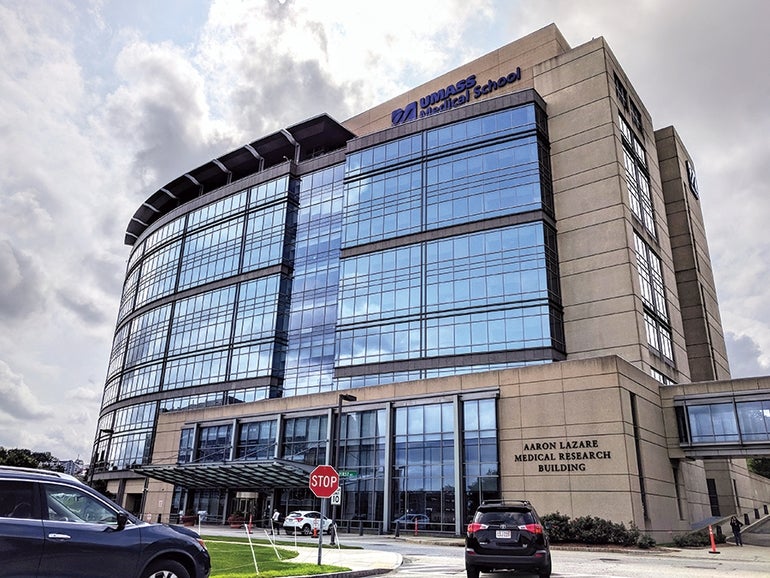A Toronto foundation has donated $1.4 million to UMass Medical School in Worcester to advance a gene therapy to treat genetic disorder Tay-Sachs.
The gift from the Blu Genes Foundation is intended to help move the research from the preclinical phase to human trials after a decade of scientific discovery, said Heather Gray-Edwards, assistant professor of radiology at the school.
Tay-Sachs and the similar Sandhoff Disease are inherited neurological diseases occurring when genetic mutations prevent cells from producing enzymes needed to break down and recycle materials, the medical school said.
Without those enzymes, materials in the body can accumulate to toxic levels, slowly destroying the nervous system.
Currently, there is no treatment for either disease, and the life expectancy for a child with either disease in infancy is no more than five years.
The therapy in development focuses on correcting the enzyme deficiency by delivering bits of corrective genetic material using adeno-associated virus.
The therapy has shown promising results in animals, as it has extended lifespans up to four times those of untreated animals, according to the school, which has partnered with Auburn University in Alabama.
Miguel Sena-Esteves, associate professor of neurology at UMMS and principal investigator of the program, said the results are there to support an investigational new drug application to the U.S. Food and Drug Administration.
The team hopes to secure approval in early 2019.

